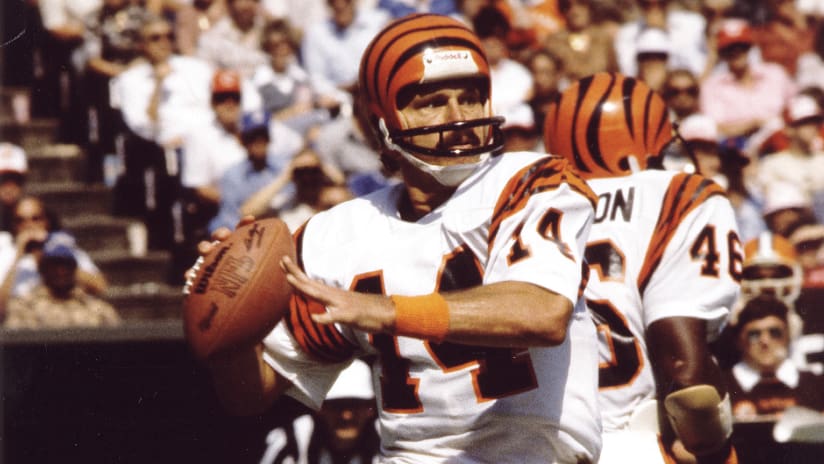Ben Roethlisberger
Ben Roethlisberger was the third quarterback taken in the first round of the 2004 NFL Draft, but so far he has been the most successful of the trio, which also included Eli Manning and Philip Rivers.
He was expected to begin his career as a backup, but within the first two weeks of his rookie season, both quarterbacks ahead of him on the depth chart went down with injuries, thrusting him into the starting role. Although he didn't have impressive numbers, he did lead the Steelers to a 13-0 record in his starts, and they finished 15-1, the best in the league. He led them to an overtime victory in his first playoff game, but ended up losing to the Patriots in the AFC title game.
The following season, he remained an average starter, but the Steelers were once again good enough to make the playoffs, and he was very good in three consecutive road playoff wins, throwing for 680 yards, 7 touchdowns, and only one interception as they made it to the Super Bowl as a 6th seed. He was not as good in the Super Bowl, throwing for only 123 yards and 2 picks, but they were able to win the championship anyway.
They were unable to match the feat in 2006 after Roethlisberger suffered serious injuries in an off-season motorcycle accident, and they didn't even make the playoffs, while Big Ben had the worst season of his career, leading the league in interceptions and setting his career low in completion percentage.
He improved over the next two years, setting a career high in touchdowns in 2007 with 32, and leading the Steelers back to the Super Bowl in 2008, this time winning two home games en route. He played better this time, throwing 256 yards and the game-winning touchdown against Arizona, making him a two-time champ, even though he still has not won an MVP.
He had a bit of a down year in 2010 overall, but managed to make another run to the Super Bowl, where he lost in the title game for the first time, although his play was equal to that of his previous Super Bowl. He has been very consistent for his entire career, missing only a few games here and there to injury and suspension, and never more than 4 in a season.
In 2014 he had his best year, leading the league in passing yardage with 4952, which was his career high by over 600, and tied his career high with 32 touchdowns while tossing only 9 picks all season. Unfortunately, the amazing regular season didn't translate over into the postseason, where they were upset by the Ravens in the first round.
He has continued to be a solid starter over the last 4 seasons, even setting new career highs in yardage and touchdowns again in 2018, but he also led the league with 16 interceptions. It was the first time he reached the magic 5000 yard plateau, so he may still have several good years in front of him.
He is a two-time Super Bowl champ with three overall appearances, but he wasn't the best quarterback in any of those three games. He has bounced between solid and star status for his entire career, and with 15 seasons as a starter, he is helped by longevity. If he continues his current level of play, he could end up making it into the top 15, and has an outside chance at the top 10.













